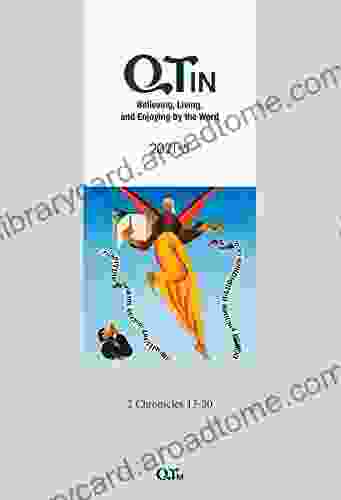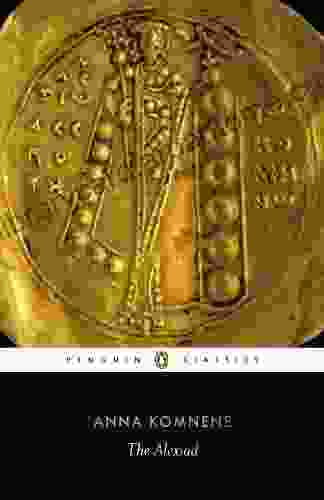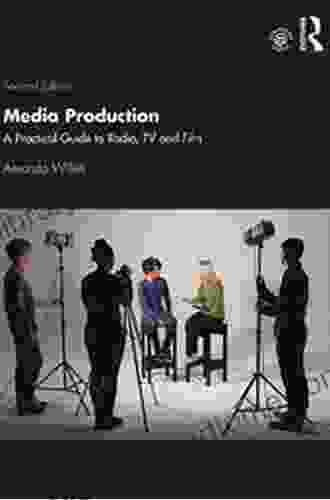Reflections On Free Will Language And Political Power Columbia Themes In

Reflections On Free Will Language And Political Power Columbia Themes In is a book by Noam Chomsky, a world-renowned linguist, philosopher, and political activist. The book is a collection of essays that explore the relationship between free will, language, and political power.
4.3 out of 5
| Language | : | English |
| File size | : | 459 KB |
| Text-to-Speech | : | Enabled |
| Screen Reader | : | Supported |
| Enhanced typesetting | : | Enabled |
| Word Wise | : | Enabled |
| Print length | : | 130 pages |
Chomsky argues that free will is an illusion, and that our actions are determined by our genes and our environment. He also argues that language is a tool that we use to control others, and that political power is a way to maintain control over society.
Chomsky's ideas are controversial, but they are also thought-provoking. Reflections On Free Will Language And Political Power Columbia Themes In is a must-read for anyone who is interested in understanding the nature of free will, language, and political power.
Free Will
Chomsky argues that free will is an illusion. He says that our actions are determined by our genes and our environment. We are not born with a blank slate, but rather with a set of predispositions that shape our thoughts and actions.
Chomsky's argument is based on the idea that the laws of physics are deterministic. This means that every event is caused by a prior event, and that there is no such thing as chance. If our actions are determined by our genes and our environment, then there is no room for free will.
Chomsky's argument is controversial, but it is supported by a growing body of evidence. Studies have shown that our genes and our environment have a significant impact on our personality, our intelligence, and our behavior. It is also clear that our actions are often influenced by unconscious factors, such as our fears and our desires.
Language
Chomsky argues that language is a tool that we use to control others. He says that we use language to manipulate people into ng what we want, and to maintain our power over them.
Chomsky's argument is based on the idea that language is a system of symbols that we use to represent the world. We use words to describe things, to make statements, and to ask questions. However, Chomsky argues that language is not simply a neutral tool for communication. Rather, it is a tool that we use to shape the way that others think and act.
Chomsky gives several examples of how language can be used to control others. He says that we use language to create stereotypes, to spread propaganda, and to justify violence. We also use language to silence dissent and to maintain the status quo.
Chomsky's argument is a powerful reminder of the importance of language. We need to be aware of the ways that language can be used to control us, and we need to be careful about how we use language ourselves.
Political Power
Chomsky argues that political power is a way to maintain control over society. He says that those who have political power use it to protect their own interests, and to suppress dissent.
Chomsky's argument is based on the idea that political power is a form of violence. He says that those who have political power use it to threaten, to intimidate, and to punish those who do not obey them.
Chomsky gives several examples of how political power can be used to control society. He says that those who have political power use it to control the economy, the media, and the education system. They also use it to suppress dissent and to maintain the status quo.
Chomsky's argument is a powerful reminder of the dangers of political power. We need to be aware of the ways that political power can be used to control us, and we need to be careful about who we give political power to.
Reflections On Free Will Language And Political Power Columbia Themes In is a thought-provoking book that explores the relationship between free will, language, and political power. Chomsky argues that free will is an illusion, that language is a tool that we use to control others, and that political power is a way to maintain control over society.
Chomsky's ideas are controversial, but they are also important. We need to be aware of the ways that free will, language, and political power can be used to control us. We need to be careful about how we use these things ourselves, and we need to be vigilant in our defense of freedom and democracy.
4.3 out of 5
| Language | : | English |
| File size | : | 459 KB |
| Text-to-Speech | : | Enabled |
| Screen Reader | : | Supported |
| Enhanced typesetting | : | Enabled |
| Word Wise | : | Enabled |
| Print length | : | 130 pages |
Do you want to contribute by writing guest posts on this blog?
Please contact us and send us a resume of previous articles that you have written.
 Book
Book Novel
Novel Page
Page Chapter
Chapter Text
Text Story
Story Genre
Genre Reader
Reader Library
Library Paperback
Paperback E-book
E-book Magazine
Magazine Newspaper
Newspaper Paragraph
Paragraph Sentence
Sentence Bookmark
Bookmark Shelf
Shelf Glossary
Glossary Bibliography
Bibliography Foreword
Foreword Preface
Preface Synopsis
Synopsis Annotation
Annotation Footnote
Footnote Manuscript
Manuscript Scroll
Scroll Codex
Codex Tome
Tome Bestseller
Bestseller Classics
Classics Library card
Library card Narrative
Narrative Biography
Biography Autobiography
Autobiography Memoir
Memoir Reference
Reference Encyclopedia
Encyclopedia Alex Storm
Alex Storm Alexander Peiffer
Alexander Peiffer Anne Pemberton
Anne Pemberton Lon Milo Duquette
Lon Milo Duquette Alphonso Mcclendon
Alphonso Mcclendon Allison Pataki
Allison Pataki Alison Ravetz
Alison Ravetz Nicole Bailey
Nicole Bailey Alec Worley
Alec Worley Alan M Hultquist
Alan M Hultquist Amanda D Lotz
Amanda D Lotz Alex Maccaw
Alex Maccaw Ali Brown
Ali Brown K Grotz
K Grotz Alan Wiemann
Alan Wiemann Marc Levy
Marc Levy Allan Colston
Allan Colston Albert Grandolini
Albert Grandolini Albro Lundy
Albro Lundy Andrew J Newman
Andrew J Newman
Light bulbAdvertise smarter! Our strategic ad space ensures maximum exposure. Reserve your spot today!
 Fernando BellFollow ·12.7k
Fernando BellFollow ·12.7k Tim ReedFollow ·17.6k
Tim ReedFollow ·17.6k Dan BrownFollow ·6.9k
Dan BrownFollow ·6.9k Cody BlairFollow ·10.4k
Cody BlairFollow ·10.4k Mario BenedettiFollow ·5.4k
Mario BenedettiFollow ·5.4k Desmond FosterFollow ·7.7k
Desmond FosterFollow ·7.7k Neil GaimanFollow ·7.5k
Neil GaimanFollow ·7.5k Finn CoxFollow ·18.1k
Finn CoxFollow ·18.1k

 Joshua Reed
Joshua ReedBelieving, Living, and Enjoying by the Word: Unlock the...
In a world filled with...

 Cason Cox
Cason CoxUnveil the Extraordinary World of "The Alexiad": A...
Delve into the Heart of Byzantine...

 Junot Díaz
Junot DíazUnveiling the Intricacies of Intellectual Property: Your...
In today's knowledge-driven economy,...

 Aleksandr Pushkin
Aleksandr PushkinThe Life of Louise Mathew Gregory: A Tapestry of Triumphs...
A Woman of Extraordinary Substance Louise...

 Leon Foster
Leon FosterHomemade Lotion For Beginners: Transform Your Skincare...
Step into the world of...

 Terence Nelson
Terence NelsonUnveiling the Secrets of Radio, Television, and Film: An...
: Embarking on a Journey into the...
4.3 out of 5
| Language | : | English |
| File size | : | 459 KB |
| Text-to-Speech | : | Enabled |
| Screen Reader | : | Supported |
| Enhanced typesetting | : | Enabled |
| Word Wise | : | Enabled |
| Print length | : | 130 pages |












